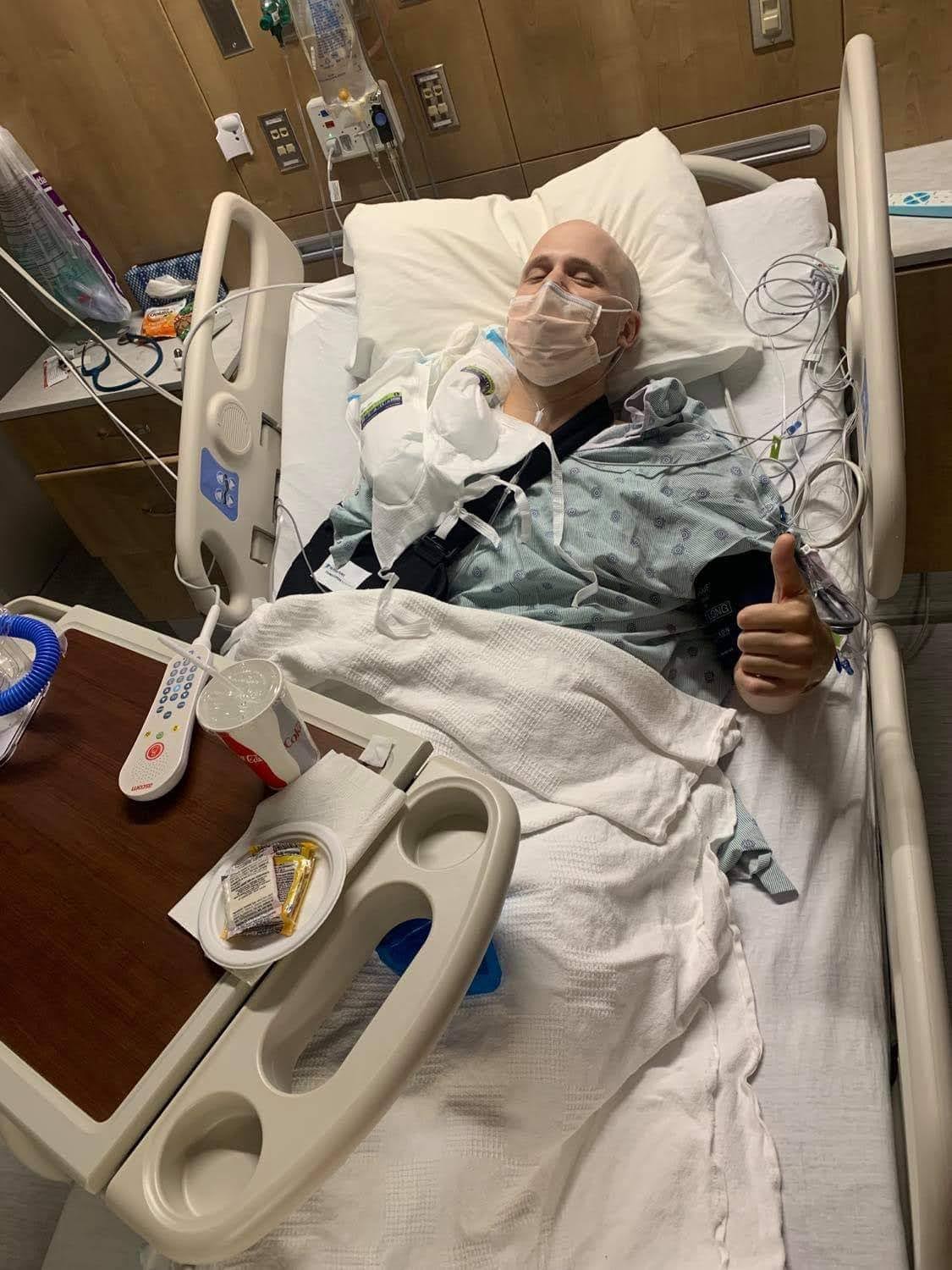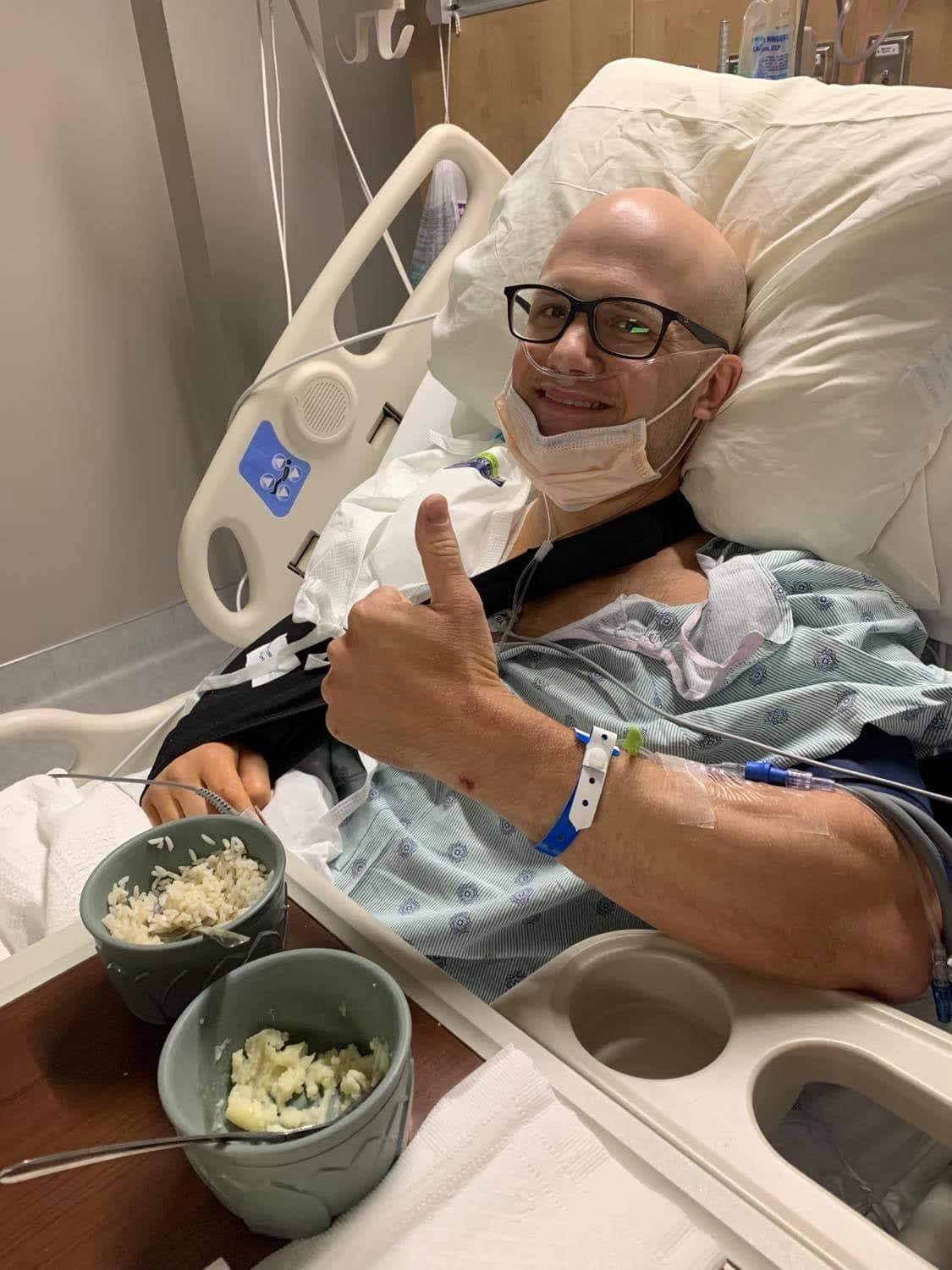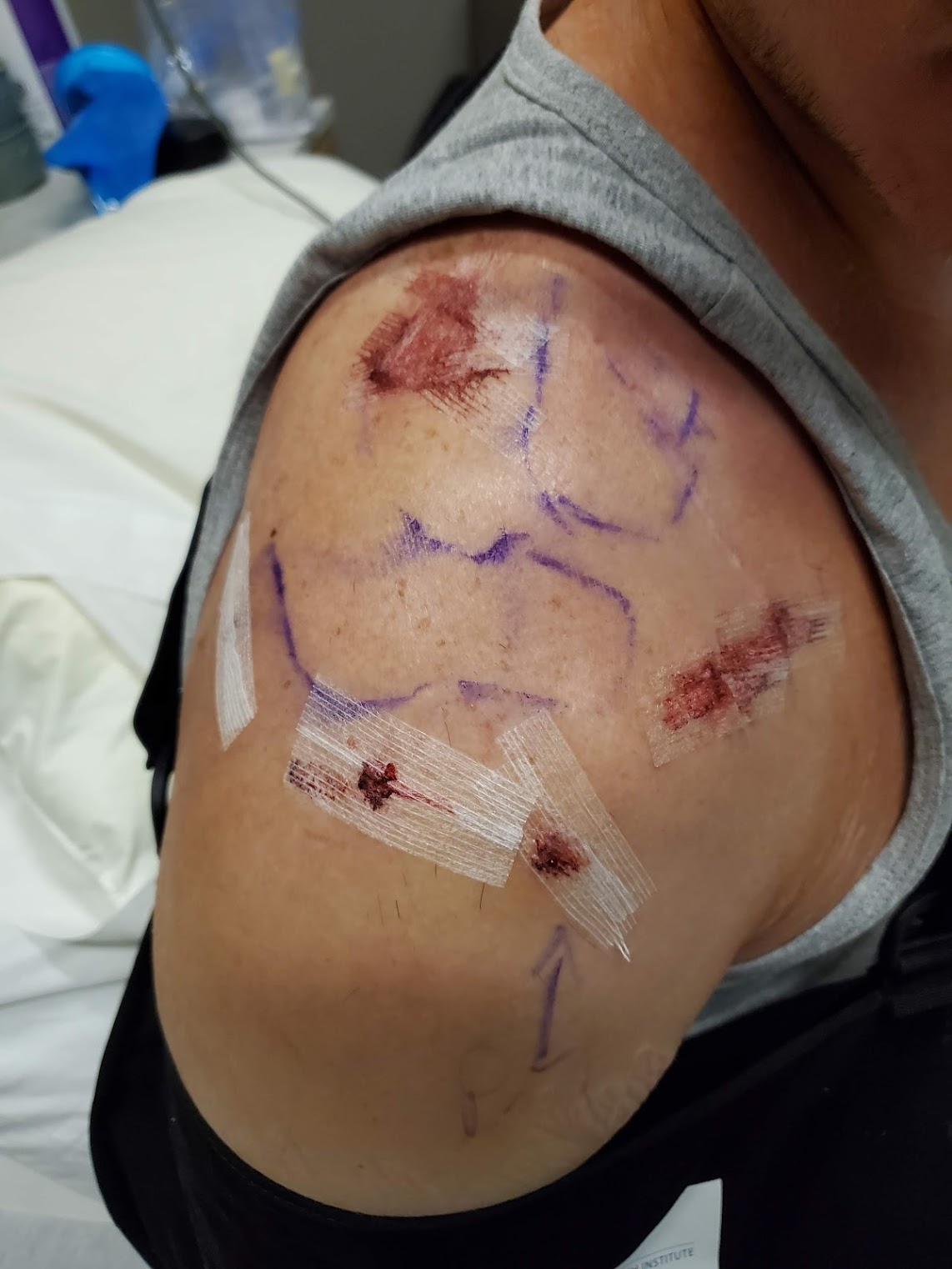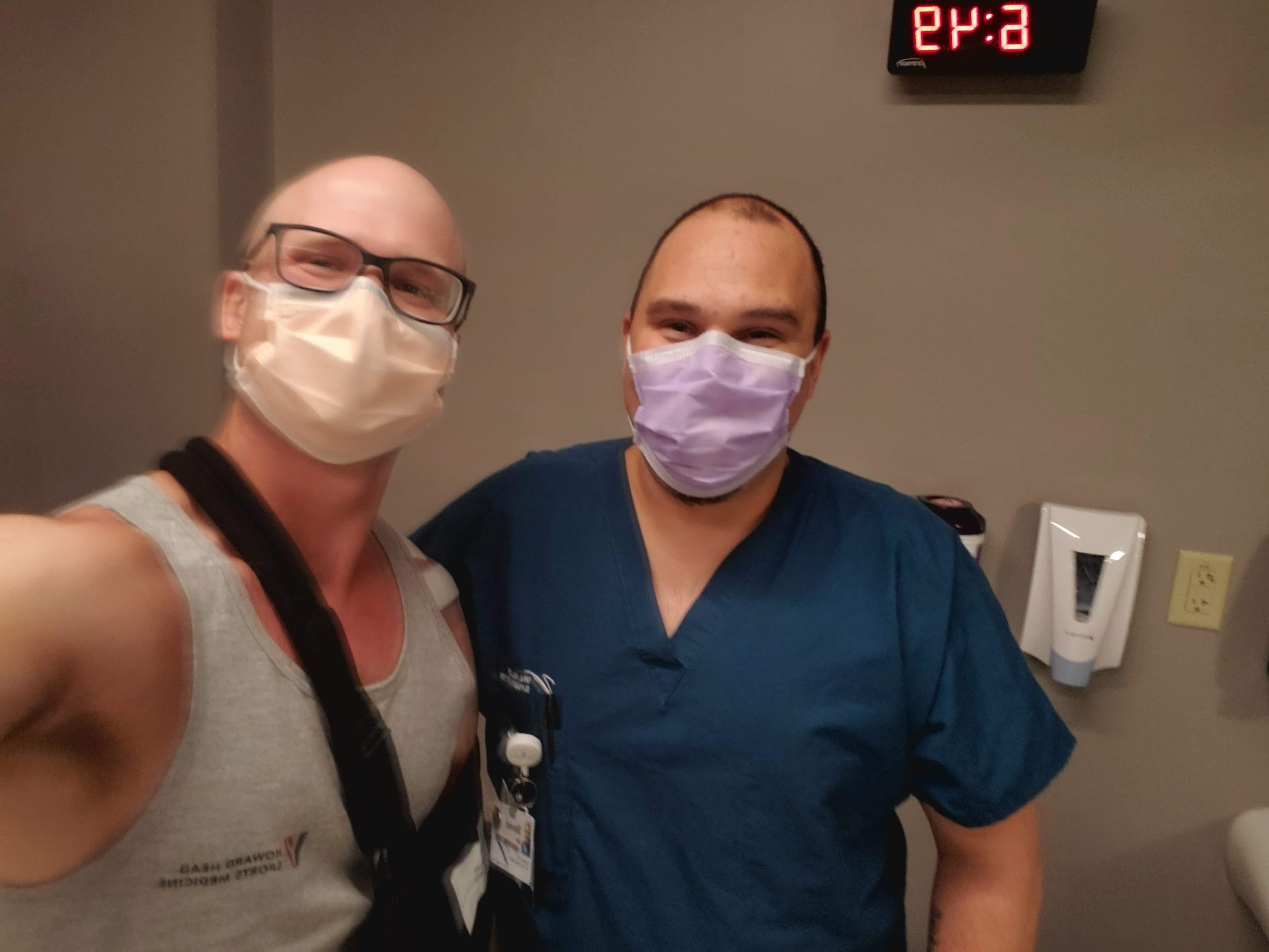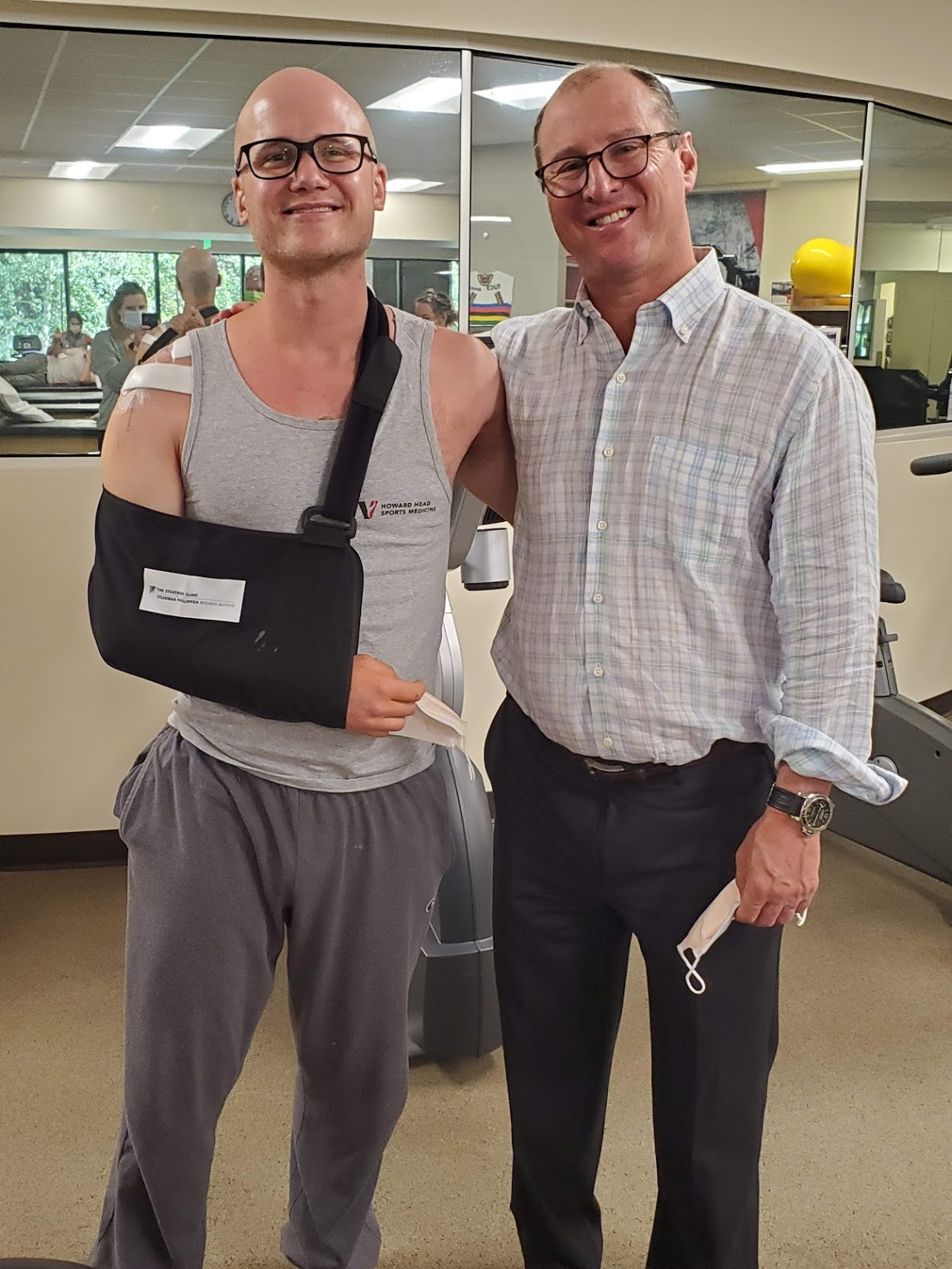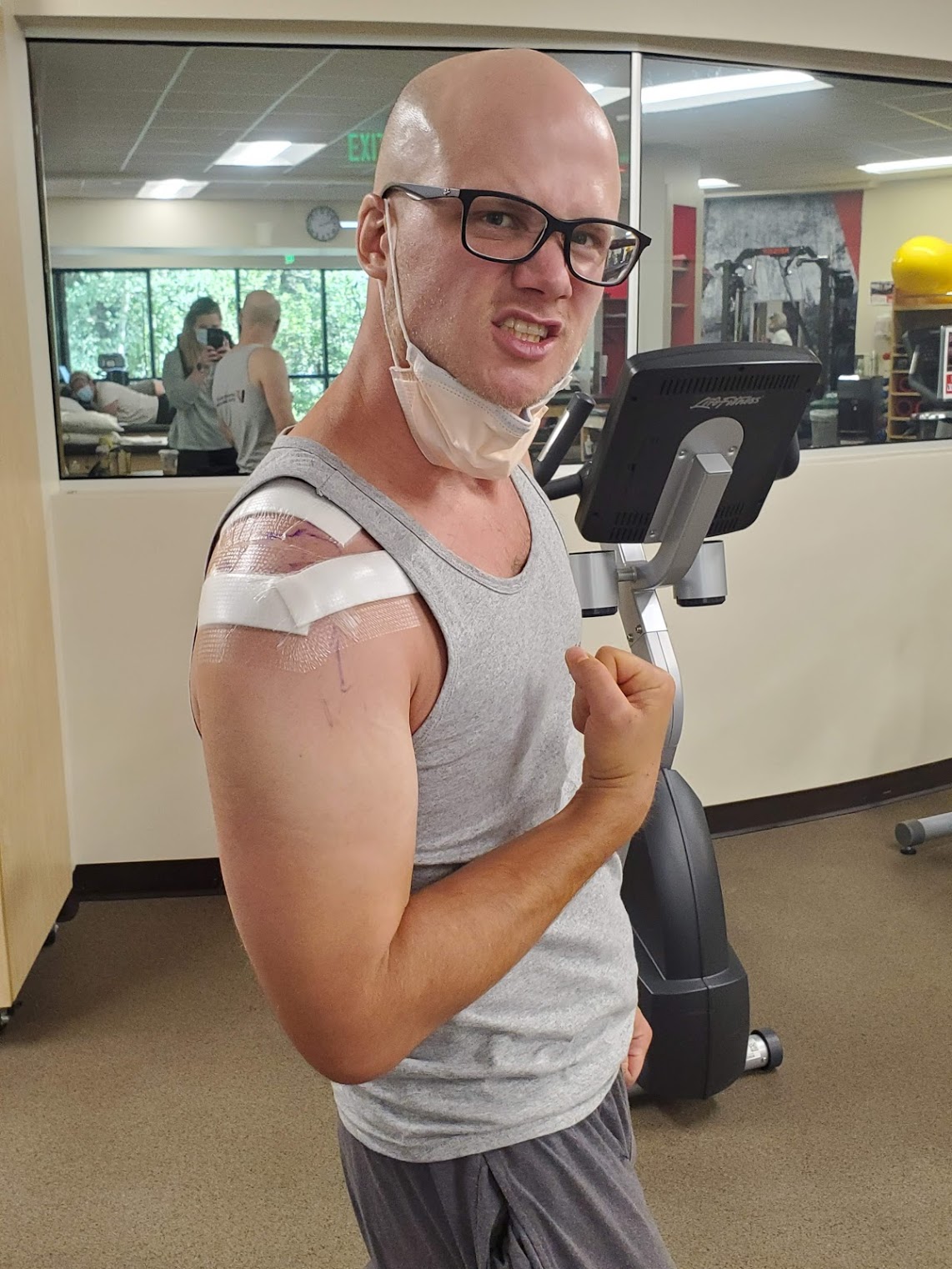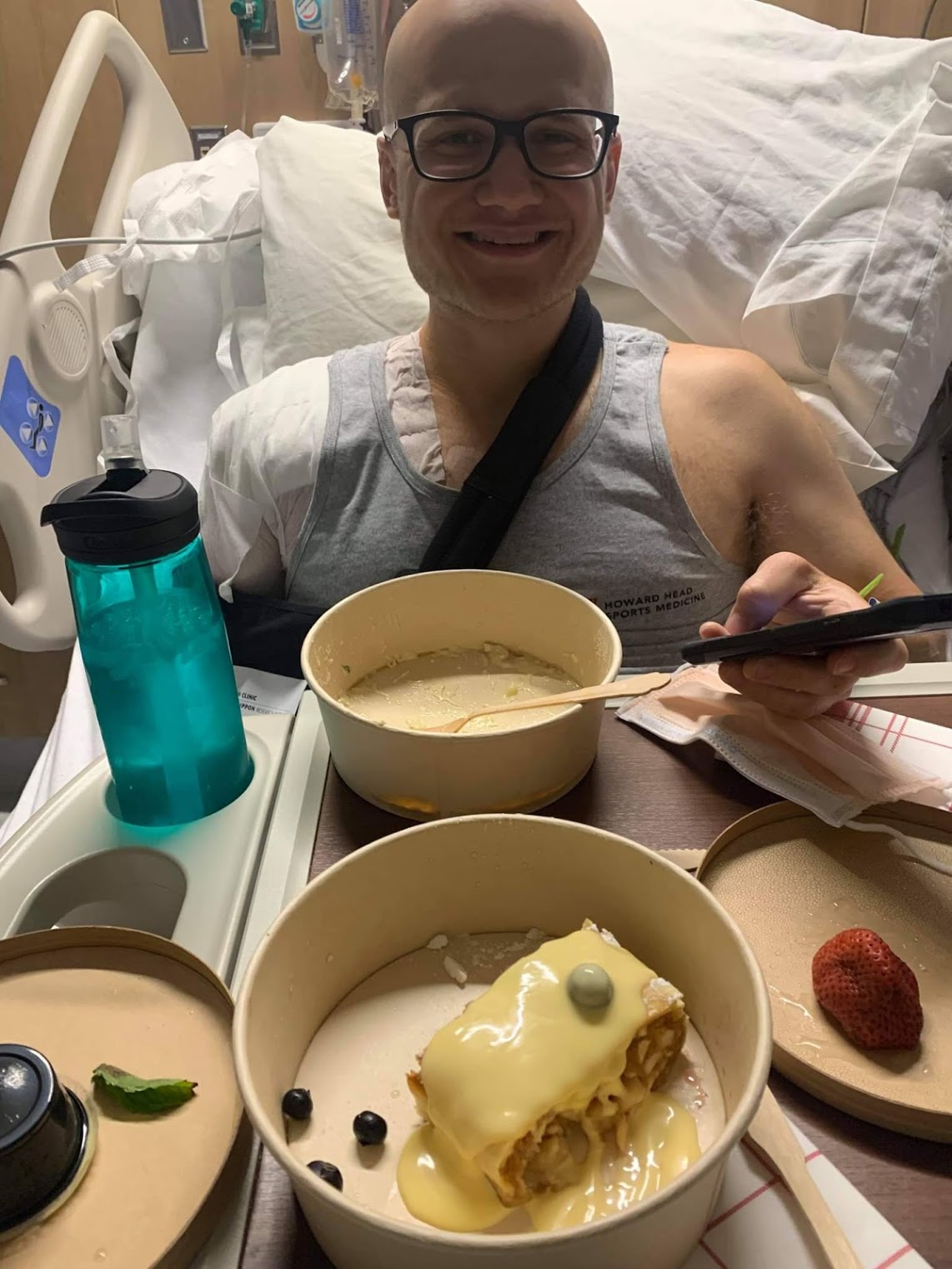Not all doctors are created equal.
In March of 2020, I injured my shoulder snowboarding. Shortly after, I received surgery on the shoulder assuming that surgery would fix any issues I was having. Shortly after that, I discovered I had lost control of some of the muscles in my shoulder. My initial doctor had missed this.
Over the next year and a half, I saw 5 doctors and 2 neurologists. They all told me things from “your shoulder will get better in a month, be patient”(it did not get better) to “there’s nothing we can do about it, just live with it”.
Then on the behest of @teddy and @nicole, last month I reached out to Dr.Millet at the Steadman Clinic in vail. Dr.Millet has published over 400 papers in arthroscopic shoulder surgery, has held faculty postions at Harvard Medical School, and was rated in the top 1% of orthopedic doctors in the country.
Within 3 minutes of looking at my charts, Dr.Millet told me that he could improve my condition via surgery “with 90-95% certainty” and “75% chance to getting back to normal function”. I was scheduled for surgery for 2 weeks later. Last wednesday I had that surgery.
I still have a recovery to go through and to remains to be seen if/how much funtion I get back. But I wanted to use this post to share some of my learnings I’ve had along the journey of this injury, in hopes that someone else will find it helpful when they get injured:
1. SEE MULTIPLE DOCTORS. Not all doctors have the same training. Some are not great doctors(after all, C’s get degrees). I saw 5 different doctors and 2 nuerologists, AND THEY ALL TOLD ME DIFFERENT THINGS. Some doctors CONTRIDICTED others. One doctor straight up said, “I disagree with this other doctor’s assessment”. Another doctor said, “this report is so bad this doctor should go back to school”. Sport medicine doctors for example will look at you through the lens of an athele who is willing to do what it takes to get full function back, vs other doctors who will only look at you to make sure you can perform daily tasks again. You also need to see multiple doctors to get the full picture of your injury. As you see each doctor, you will get slightly different information about surgeries and possible causes of symptoms. With each visit you can begin to piece together all your options.
2. Advocate for yourself. Doctors will only do what you ask them to. If you don’t say anythings wrong, even if something is clearly wrong, they won’t do anything about it. They also might wrongly assume what issue you are having if you aren’t specific about it. For me, there’s a very clear shoulder deformity. But that’s what I was concerned about. So don’t say “What can you do about my shoulder?” Say, “I want to gain functionality back in external rotation, what can you do about that?”.
3. Understand your injury, ask intelligent questions, and CHALLENGE YOUR DOCTORS DIAGNOSIS. Have your doctor explain to you the mechancis of your injury. Ask them to use proper terminology, so you can later go and research about your injury online. You’re not a medical professional, but a medical professional should be able to explain your injury to you in terms you understand(the internet can as well). If the doctor can’t, then you can’t truly make an informed decision about what to do. Go find another doctor who can explain things in a way you understand. Once you begin to understand your injury, ask intelligent questions. Dont ask, “what’s wrong with my shoulder?”, ask, “what’s wrong with my suprascapular nerve that it’s preventing me from externally rotating my arm?”. When it comes to challenging your doctor, don’t say, “why do you suggest this surgery?”, ask, “why are you suggesting to performing a superscapular nerve release when most doctors will only perform this when there is entrapment via cyst?”. Challenging the doctor in this way will lead you to understand a doctor’s ability level, understand their training, and most important understand where their shortcomings are and whether you should get a second opinion about something. Use your intuition in this case: you might not fully understand the problem space the doctor is working in, but if you challenge them, they should be able to provide you with an answer that makes sense. Your intuition can then tell you when their answer is bullshit or not totally informed.
4. Know when to run, and when to walk. Some injuries need immediate attention, and the clock is ticking. Other injuries can wait and you can spend more time gathering information and weighing your options. For me, my initial shoulder surgery in march of 2020 could have waited. In fact if I had gathered more info, I wouldn’t have gotten the surgery at all. The surgery I got last week I should have gotten a year ago to lessen my nerve deterioration and permanent damage.
I hope this post was informative, and can help you if you ever find yourself in a position where you need to make medical decisions about your body, wether it’s injury or something else.
Injuries are hard, and the medical world is not flawless. It’s flawed just like every other aspect of life. So use your wits and knowledge and problem solving to try and navigate it so you can have a good outcome.
Some photos of the surgery/hospital stay are below:
